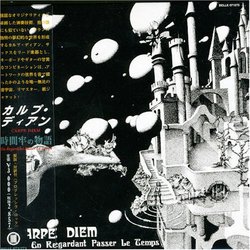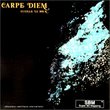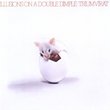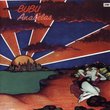| All Artists: Carpe Diem Title: En Regardant Passer le Temps Members Wishing: 1 Total Copies: 0 Label: Belle Antique Release Date: 7/2/2007 Album Type: Import Genre: Rock Style: Number of Discs: 1 SwapaCD Credits: 1 UPC: 667344753520 |
Search - Carpe Diem :: En Regardant Passer le Temps
 | Carpe Diem En Regardant Passer le Temps Genre: Rock
The famous Crypto label, led by great producer Jean-Claude POGNANT, contributed in discovering French bands as essential as ANGE. Among these, a special one: CARPE DIEM. Led by Claude-Marius DAVID (Saxophone & flute), ... more » |
Larger Image |
CD DetailsSynopsis
Album Description The famous Crypto label, led by great producer Jean-Claude POGNANT, contributed in discovering French bands as essential as ANGE. Among these, a special one: CARPE DIEM. Led by Claude-Marius DAVID (Saxophone & flute), this band from Nice gave birth to two splendid albums: "En Regardant Passer Le Temps" (1975) and "Cueille Le Jour" (1976). Their refined Progressive rock includes rare vocal parts, instrumental intensity and beauty, with sophisticated songwriting and structures. Musical themes are gracious, worked-out, perfectly developed and arranged. Fluid organ reworked sounds are beautifully combined with lyrical flute parts or airy guitars, to create a dreamlike chamber rock, suggestive, full of freshness and subtlety. The music can be brought near CARAVAN or FRUUPP, with some VAN DER GRAAF GENERATOR remembrances. To be rediscovered ! Similar CDs
|
CD ReviewsEssential French prog BENJAMIN MILER | Veneta, Oregon | 10/08/2003 (5 out of 5 stars) "Any prog rock album that features M.C. Escher-like cover artwork has got to be cool, and this album, En Regardant Passer Le Temps by Carpe Diem is one of them. Often thrown in the "space fusion" category with the likes of Gong and Ozric Tentacles, the music is actually more symphonic prog, with some jazzy elements courtesy of sax. The rest of the instruments consists of keyboards (string synths, Farfisa electric piano, synthesizers), flute, guitar, bass, and drums, with some vocals in French. Often getting compared with the likes of Gong and Soft Machine, I can't figure out why because these guys have a sound all their own, making it one of the more original albums I've heard from the mid 1970s. This is one album where there is no one high point, as all four cuts are of the same excellent quality. It's little wonder why this album gets mentioned with the likes of Pulsar's Halloween, Magma's Mekanik Destruktiw Kommandoh, Atoll's Tertio, several albums from Ange, etc. as far as French prog is concerned. Essential album as far as I'm concerned." Elaborate and sophisticated space rock Warren W. Nelson | Mooresville, NC USA | 03/17/2006 (5 out of 5 stars) "Carpe Diem is a band that completely captures my imagination. This, their debut album from 1975 is one of the finest French progressive albums from the 1970's that I have heard. They are particularly fine in developing and arranging their material and are superb musicians concentrating on developing the inner balance of their material and revealing a sophisticated logic in their song construction. It is essential that the listener should listen to this several times as there is a dialectical logic to the melodic and harmonic structure of the songs; building their melodic accomplishments in a continuous and evolving symphonic expression.The band 'Yes' were masters of this art, and they seem to have found the secret and intelligence to propel what appears to be a simple and engaging riff into a grandeloquent expression. Instrumental interaction is superb and each instrument is assigned a virtuous and demanding role unfolding in a variegated texture of rich harmonic colors.Although they lacked the dynamics of Yes, Carpe Diem were basically an elaborate space-rock band; and initial comparisons to Daevid Allen era Gong are not unfounded, with some psychedelic guitar, keyboard, and synth swirling out of the basic song structure into space rock dimensions, and the saxophone resemblence to Didier Malherbe is uncanny. But Carpe Diem is a much more sophisticated band, relying not so much on improvisation and psychedelic effects as on complicated frameworks within which to elaborate a kind of conceptual hallucination. This mostly instrumental album is a superb example of French progressive music and one of my personal favorites." Good symphonic prog from France Jeffrey J.Park | Massachusetts, USA | 06/06/2007 (5 out of 5 stars) "I really enjoy the music from the French prog/experimental scene and find the intense emotion of the French bands very appealing - some may find it overly dramatic, but it works for me. This somewhat obscure 1975 album by Carpe Diem is yet another great release from the French scene and presents a great mix of proggy ensemble work, cool synthesizer sounds, and great arrangements. In terms of influences, I can hear some English prog, but I can not nail it down to a single band so I won't. Suffice it to say that this music is very much in the symphonic prog vein.
The lineup on En Regardant Passer le Temps included Christian Truchi (ARP String Ensemble, electric piano, modified Farfisa organ, vocals); Gilbert Abbennati (electric guitar and acoustic guitar); Alain Berge (electric bass guitar); Alain Faraut (drums and percussion); and Claude-Marius David (soprano saxophone; flute; percussion). I have to admit that I love the subtle keyboard work on this album - the modified Farfisa organ sound is highly reminiscent of the sound that fellow French prog band Ange got. Christian seemed more interested in creating atmospheres than highly virtuosic scalar runs. Overall this is a group of great players and there is excellent individual playing and ensemble work. The few vocal passages that are present are very good (and in French). Musically, this is full blown symphonic prog that is not unlike a lot of the stuff that was coming out of England at the time, although there is the distinctive stamp of the French prog scene on the music. The four tracks range in length from 3'48 to 12'50" and the overall sound is very full, with wonderful keyboard textures and great arrangements. The more pastoral moments on the album feature flute and quiet electric guitar - OK I will admit that the pastoral sections remind me a bit of early Genesis. When the band gets going full steam however, that is when things get really exciting. In general, these guys could write pretty interesting pieces and there are some very nice melodies and good use of dynamics. Musea did a pretty good job of remastering this album and there are loads of liner notes. The sound quality is not bad at all - the original album used 16-track recording. Remarkably, the album was recorded over a ten day period and produced by the band with help from a recording engineer. All in all this is a pretty good album of somewhat obscure symphonic prog from the French scene and is recommended. Other great prog/experimental albums from France include two spacey synth-heavy albums by Pulsar (Strands of the Future (1976); and Halloween (1977); a few heavier albums by Ange (Au dela du delire (1974); and Emile Jacotey (1975); and at the complete opposite end of the spectrum are a few albums by the avant-garde chamber progressive group Magma (Magma Live (1975); and Udu Wudu (1976). Magma is not for the faint of heart and presents a truly original contribution to progressive rock as a genre." |

 Track Listings (4) - Disc #1
Track Listings (4) - Disc #1


